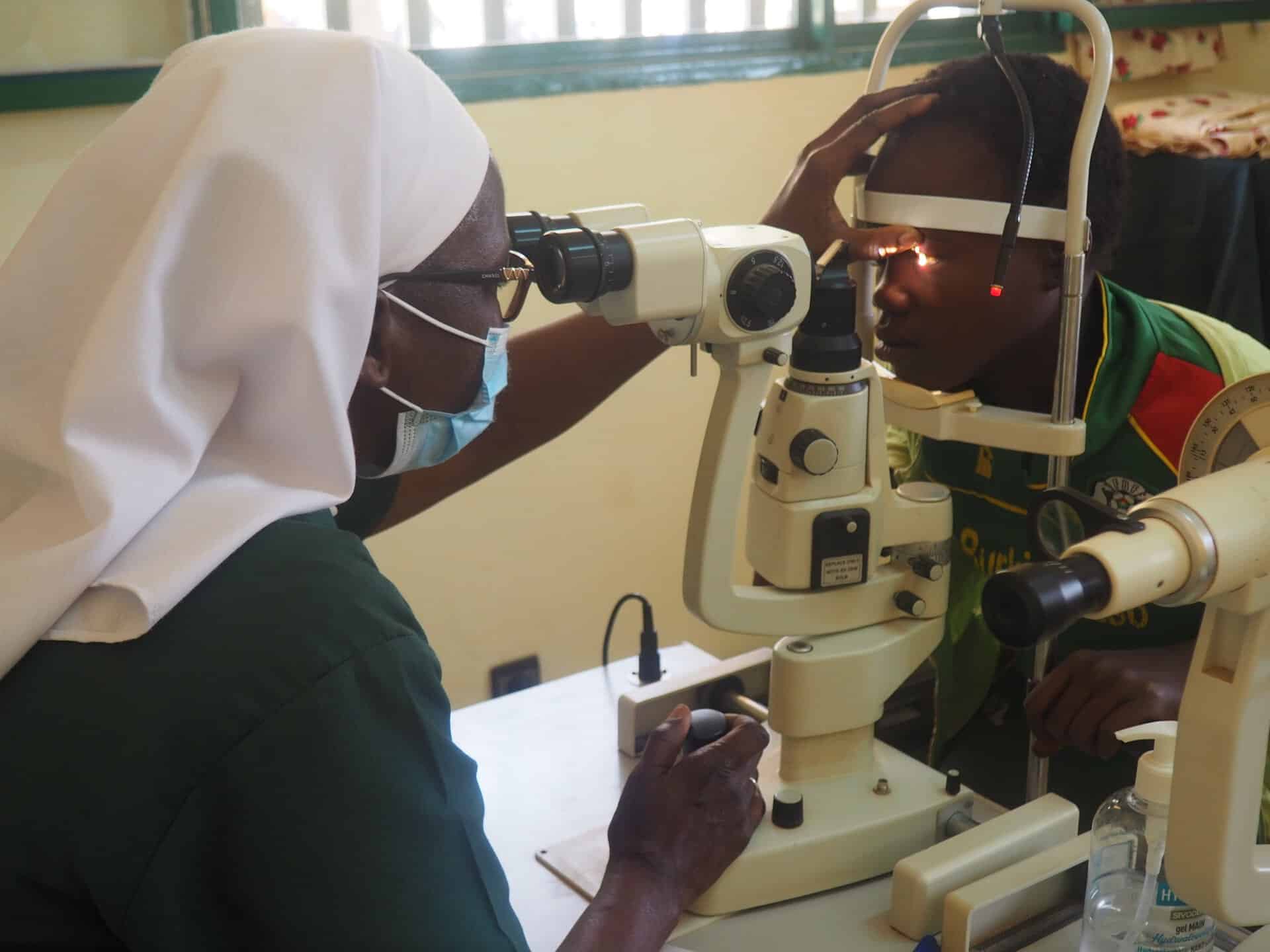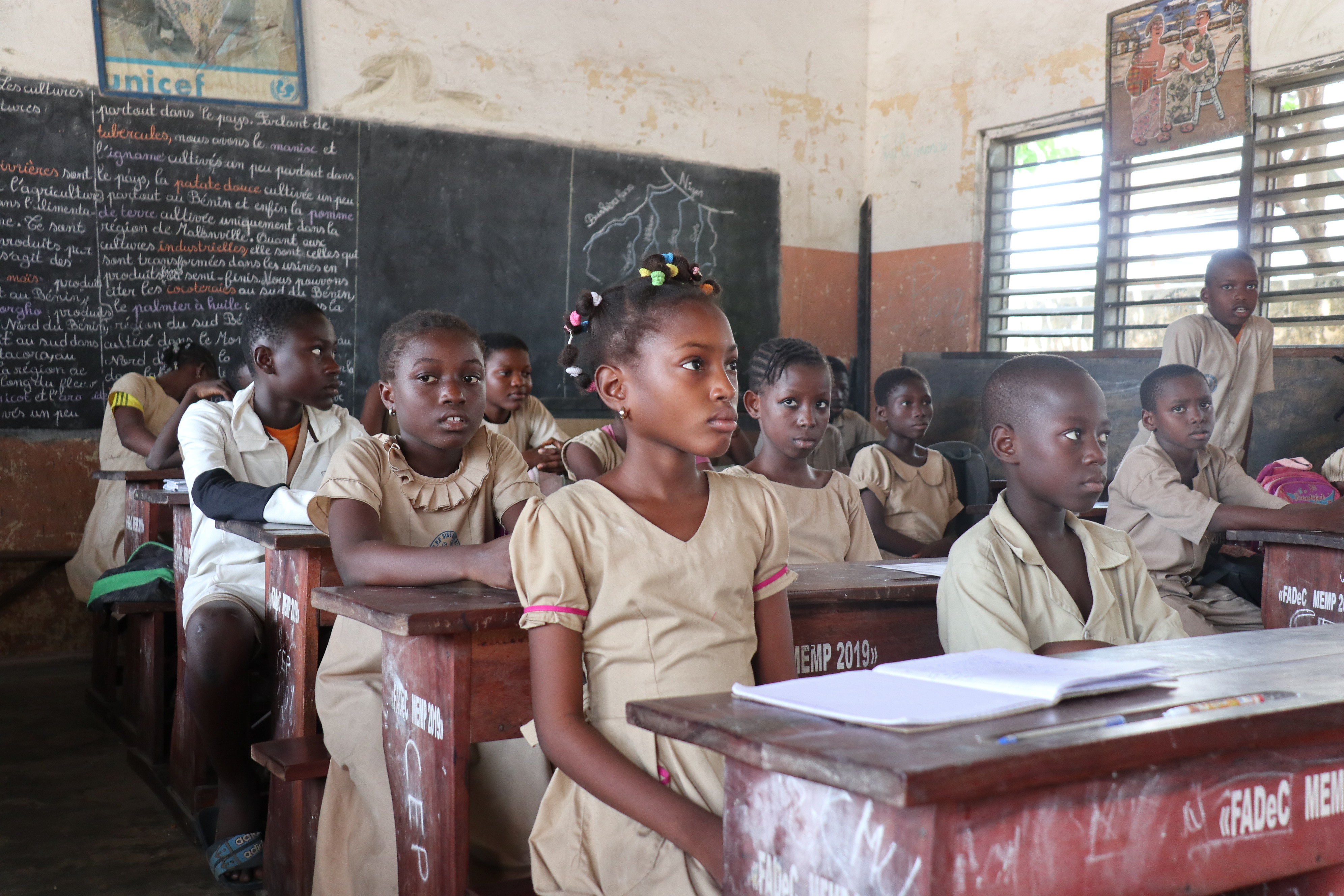Action Education is committed to breaking down the barriers posed by visual impairment and enabling pupils, especially girls, to continue their education, through the project to support the schooling of girls (SCOLFILLE) for the benefit of pupils from intervention schools in Burkina Faso.
9 visually impaired pupils from partner schools are being looked after to light the way to education.
Several international conventions on inclusive education, such as the Convention on the Rights of the Child (CRC)These conventions commit governments to taking the necessary steps to provide quality education for all children without distinction. Unfortunately, there is a gap between the conventions signed and reality, especially in developing countries where disability is often an obstacle to quality education.
In Burkina Faso, mainstream schools are not prepared for children with disabilities. The infrastructure is generally unsuitable and the teaching staff are not trained to deal with these children. Some special schools do not cover all needs. When children enrol in school, there is no specific medical examination; only disabilities that are observable or have obvious effects are identified. Of course, children with disabilities are not excluded, but the learning conditions are not favourable to them.
That's why the SCOLFILLE project, the fruit of a partnership with the Foundation Audemars-Watkins and the L'OCCITANE Fund, decided to address visual impairment in partner schools in the Ziro and Sissili provinces. A summary census carried out with the support of parents and teachers in 15 schools revealed 26 cases of disability, including 12 forms of visual impairment.
The importance of ophthalmological care
To ensure proper care, 9 visually impaired girls were examined on 1 January.er March 2024 at the Notre-Dame de la Miséricorde clinic in Léo, capital of the Sissili province in Burkina Faso. Coming from several of the project's partner schools and accompanied by their parents, they were received for clinical examinations by Sister Honorine Ouédraogo, a health attaché in ophthalmology.

Sister Honorine Ouedraogo in consultation with visually impaired girls
Irreversible visual impairment
Konaté Adidjatou is 15 years old and attends CM2 at To B public primary school in Sissili province. She was accompanied by her uncle Konaté Mouhazou. She lost her right eye.
"I can't see with my right eye but it doesn't hurt. In class, I can see well with my left eye at the blackboard, but I'm excluded from other activities.she says. The right eye has changed.
According to his uncle, "Adidjatou fell ill at the age of 5 and was treated traditionally. Unfortunately, she can't see out of this eye.
After consultation, the sister Honorine Ouédraogo suspects that measles, if not treated properly, could cause irreversible disability.
For Tianama Roukiétou, aged 9 in CE1 at Yoro school, the diagnosis is clear. His right eye is punctured and there is no hope of regaining his sight, according to the ophthalmologist. For her uncle Tianama Saïdou, it was an unfortunate incident between children with irreversible consequences for his niece.
"In 2019, Roukietou was playing with a friend when he hit her with a piece of wood that hit her right eye. We took her to the village health centre and we were transferred to Ouagadougou to Tenganogo hospital. But we couldn't save the eye.he says.
For Roukiétou, "My eye doesn't hurt but I can't see. I'm in class with my left eye"..
For these two cases, Sister Honorine Ouédraogo offers aesthetic eye prostheses, not to see with the damaged eye, but to give the appearance of a normal eye and avoid stigmatisation.

Konate Adidjaratou and Tianama Marietou
Visual impairment from birth
Ouédraogo Fatimata, a 15-year-old in CM1 at the Bougagnonon state primary school in Ziro province, also suffers from a visual disability. According to her father Issaka Ouédraogo, she has trouble seeing out of both eyes, and the problem has persisted since birth.
"She was born with the problem. When she was born, a whitish liquid ran from her eyes. And her grandfather suggested a traditional treatment to cure her. But that didn't solve the problem. We didn't take her to the health centre early. That was our mistake".confesses the father.
In class, Fatimata can't see very well. "I can't see very well in class. If I'm sitting at the first table, I can read the blackboard properly, but at the back of the class I can't see very well. I told the teacher and he put me in front.she adds.
After consultation, Sister Honorine Ouédraogo suggested in-depth examinations in Ouagadougou, with better technical facilities.

Fatimata Ouedraogo and her father, Issaka Ouedraogo
Albinism and visual impairment
Dabiré Toney is in CE2 class at Dafin-Dagara state primary school. She is albino and suffers from poor eyesight and fragile skin. She is very sensitive to the sun and to the bites of flies and mosquitoes.
"I've had trouble seeing for a long time. If I'm at the back of the class, I can't see very well.she says.

Dabiré Toney
Treatments for visual impairment
After consulting the girls, Sister Honorine Ouédraogo diagnosed several causes and suggested treatments, corrections and further examinations: "Two girls have only one eye left, having lost their second. The disability is irreversible. There is allergic conjunctivitis that needs to be treated. Finally, there is the special case of Dabiré Toney, who is albino. This requires regular monitoring because of his fragility. I have prescribed immediately available treatments, corrective lenses and aesthetic eye protectors for those who have lost an eye, to avoid stigmatisation. Finally, I referred some of them to Ouagadougou for better technical facilities..
The treatments available locally were immediately made available to the girls' families thanks to the SCOLFILLE project.
Thanks to the SCOLFILLE project, Action Education is helping visually impaired girls in the intervention schools to continue their education.
However, there are many pupils in Burkina Faso who will not have the chance to be monitored and taken care of. There is a real risk that visual impairment will be a barrier to their studies.

Visually impaired girls from the SCOLFILLE project come to the clinic for a consultation






